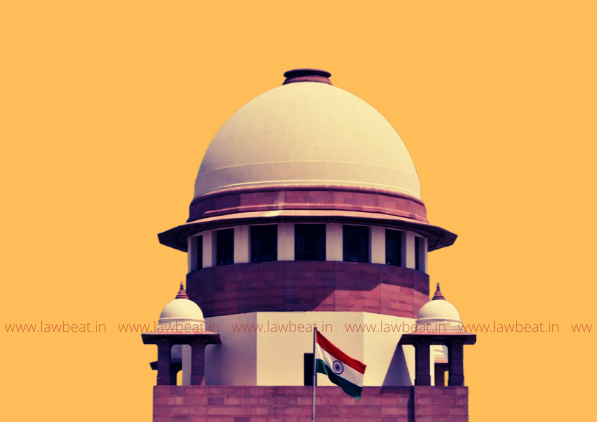Supreme Court Directs Central Govt To Frame A National Policy On Admissions In Hospital To Be Followed Uniformly By All State Governments Within Two Weeks

The Supreme Court Bench of Justices DY Chandrachud, LN Rao & S Ravindra Bhatt while hearing a suo moto plea related to management of CoVID crisis PAN India has directed the Central Govt to frame a national policy on admissions in the Hospitals within two weeks which would be followed by all State Governments to ensure that no one in need is turned away from a hospital due to no fault of their own.
“Gaining admission into a hospital with a bed is one of the biggest challenges being faced by most individuals during this second wave of the COVID-19 pandemic. Left to their own devices, citizens have had to suffer immeasurable hardship. Different states and local authorities follow their own protocols. Differing standards for admission in different hospitals across the nation leads to chaos and uncertainty. The situation cannot brook any delay.”, the Court observed.
Further the Court has also directed the State/ UT to not deny hospitalization or essential drugs on account of lack of local residential proof of that State/ UT or even in the absence of identity proof until the formulation of the national policy.
The directions have been passed in light of absence of a national policy related to admissions in the various tiers of hospitals (CCC, DCHC and DCH).
Further, the Court has directed to the Govt to address the following issues in relation to admission:
- Requirement of a positive test for COVID-19 virus, which may become difficult for many individuals since testing facilities are overwhelmed, test results are taking inordinately long time and the new strain of the COVID- 19 virus is sometimes not even picked up by a regular RT-PCR test;
- Some patients are being refused service based on arbitrary factors. For example, the hospitals in Ahmedabad were initially refusing to take in patients who did not arrive in the government-run „108‟ ambulances. While this rule has now been removed, after objections were noted by the Gujarat High Court during hearings in a suo motu public interest litigation, we note that such rules cannot be allowed to crop up in other places
- Some reports have also been brought to our attention that hospitals are refusing to admit individuals who cannot produce a valid ID card which shows that they belong to the city where the hospital is located. Given how overstretched our hospitals are during the second wave of the COVID-19 pandemic, it is entirely plausible that individuals may travel to other cities in desperation, since beds may not be available in their city. The rural health infrastructure is seriously deficient. Hence, no hospital should be allowed to deny them entry solely based on this reason or any other issues with identity proofs;
- A related issue is when individuals often get their family member admitted in a hospital in one city, but have to travel to another city to look for oxygen or essential drugs and are denied their use because they are to be bought for an individual admitted in a different city. As was true for the above such rule, this is also unacceptable and should not be allowed;
- Admissions to hospital must be based on need. The Central Government, in consultation with the respective State Governments, must formulate guidelines on the stage at which hospitalization is required so as to ensure that scarce hospital beds are not occupied by persons who do not need hospitalization. This aspect should be based on the advice of medical experts and can be suitably altered given the needs of each State (or regions within the State) and in the course of the experiences gained during the pandemic; and
- Directions are hereby issued to all States, Union Territories, and all public agencies, to ensure that the above orders are implemented forthwith. The Central, State and Union Territory governments shall issue necessary orders and circulars, incorporating the above directions, within three days, which shall be in force till replaced by an appropriate uniform policy, devised by the central government, statutorily
On the aspect of augmentation of health care workers, the Court in order to ensure optimal manner of utilization of the medical services, has directed the Central Govt to look into the aspect of availability of large number of medical, nursing and pharmacy students, who graduated in 2020 and would be in the process of graduating in 2021. The Court has also directed the Centre to consider using health care workers available with the armed forces & paramilitary forces for the purpose of vaccination subject to their safety & well being.
“Not only as members of this Court, but also as grateful citizens of the country, and commend the outstanding work of our all healthcare professionals (doctors, nurses, healthcare workers, laboratory technicians, ward staff, ambulance drivers, crematorium workers etc.) during this crisis. They have truly gone beyond their call of duty and toiled day in and day out, relentlessly without rest amidst great challenges. It is absolutely necessary to take urgent steps for their well-being to ensure that our appreciation for their tremendous efforts is not reduced to rhetoric.”, the Court observed.
The Court has also observed that, “While the healthcare professionals have been at the forefront of tackling this crisis, we have to recognize their contribution as medical healthcare professionals who have undertaken “to protect public health using proven scientific evidence and best practices and to serve the community at large” , and not just as CORONA WARRIORS.”
